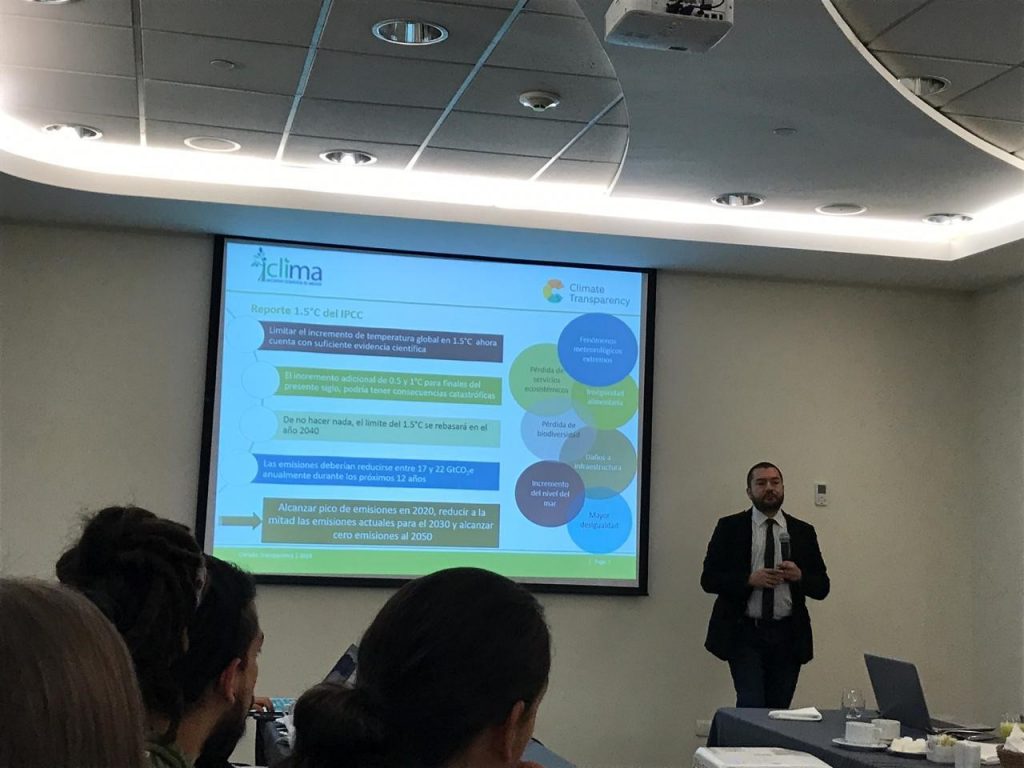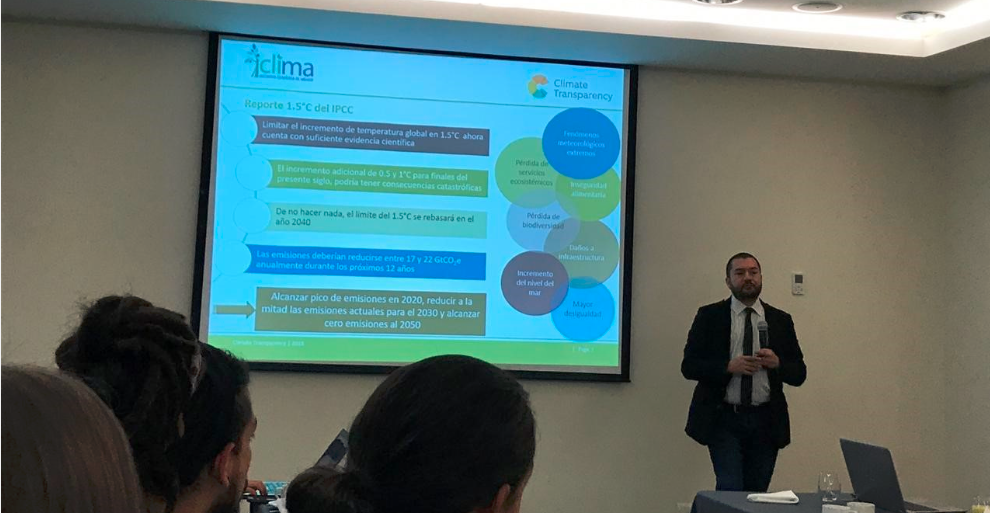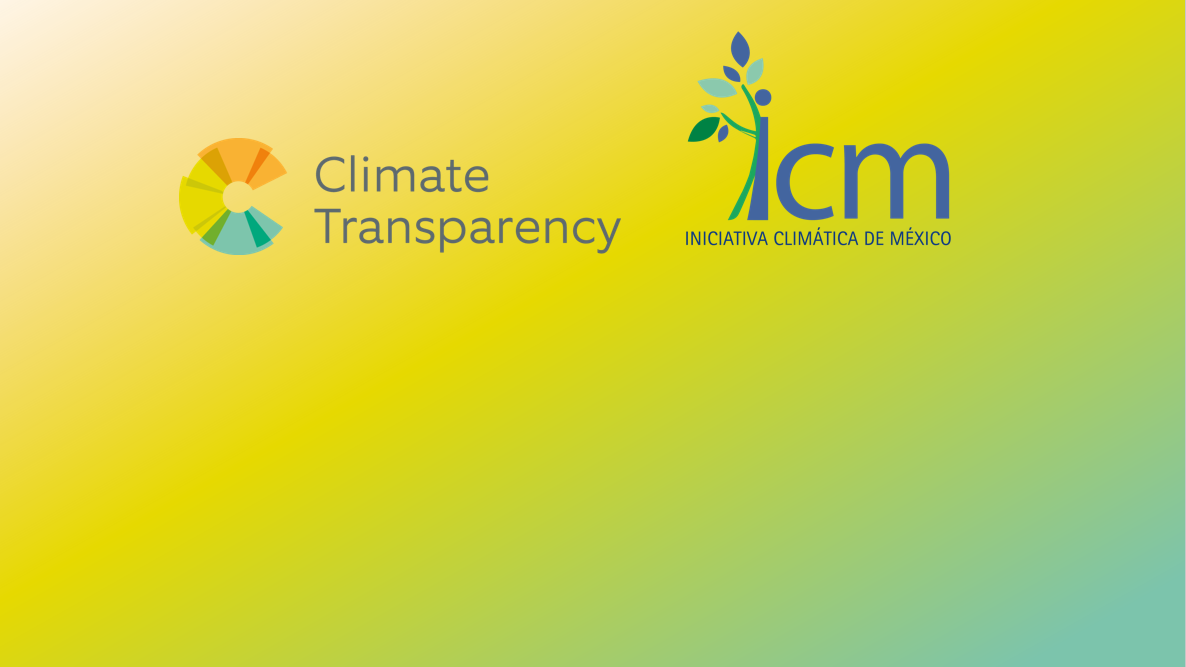The Mexican Climate Initiative (Iniciativa Climática de México A.C. (ICM) in Spanish) launched the Brown to Green Report 2018 in Mexico by inviting several representatives from national and international organizations, think tanks and academia. More than 20 representatives attended the event in the Novit Hotel, located at the Mexico City.
After an opening of Adrián Fernández, Chief Executive Officer of the ICM, Jorge Villarreal (ICM’s Climate Policy Officer) gave an overview on the climate performance of G20 countries and the developments in Mexico. He provided a summary about the G20 emissions gap to comply with the Paris Agreement, G20 energy-related CO2 emissions, the recent policy developments in the G20 and Mexico’s climate policy performance towards low-carbon and climate-resilient economy. The representatives from the World Wildlife Fund (WWF) and the Climate Finance Group of Latin America and the Caribbean (GFLAC acronym in Spanish) were invited to comment and share their perspectives on the results of the Brown to Green Report.

The participants emphasized that the Brown to Green Report 2018 is a key asset for the Global Stocktake as it provides essential inputs to define more ambitious nationally determined contributions for 2020 and 2050 and its results highlight the urgency of creating a transparency framework at the international and national levels.

Also, the participants recognized that the Brown to Green Report’s results provide powerful messages for stakeholders in terms of transparency in decision making and public policy processes for climate action, and placed emphasis on the strategies that must be carried out to place Mexico with a pathway towards low greenhouse gas (GHG) emissions and climate-resilient development. According to the participants, the main measures that the Mexican government needs to implement urgently are: phase-out inefficient fossil fuel subsidies; invest in new renewables and increase their share in the energy mix; phase out the inefficient coal-fired power plants and limit oil production and fuel-oil generation.

The participants mentioned the importance of recognizing the positive developments of the G20 to motivate the UNFCCC Parties to fully implement their NDCs and to learn from other countries’ experiences to design more ambitious policies nationally. Although the Mexican government implemented a carbon pricing scheme in 2014, fossil fuels still dominate the primary energy supply. Like other G20 economies, the Mexican government has directed public investment towards fossil fuel power projects instead of addressing climate change. Therefore, the incoming government is a renewed opportunity to place the country on the right path to a low-carbon economy and comply with the compromises announced in the Paris Agreement.





